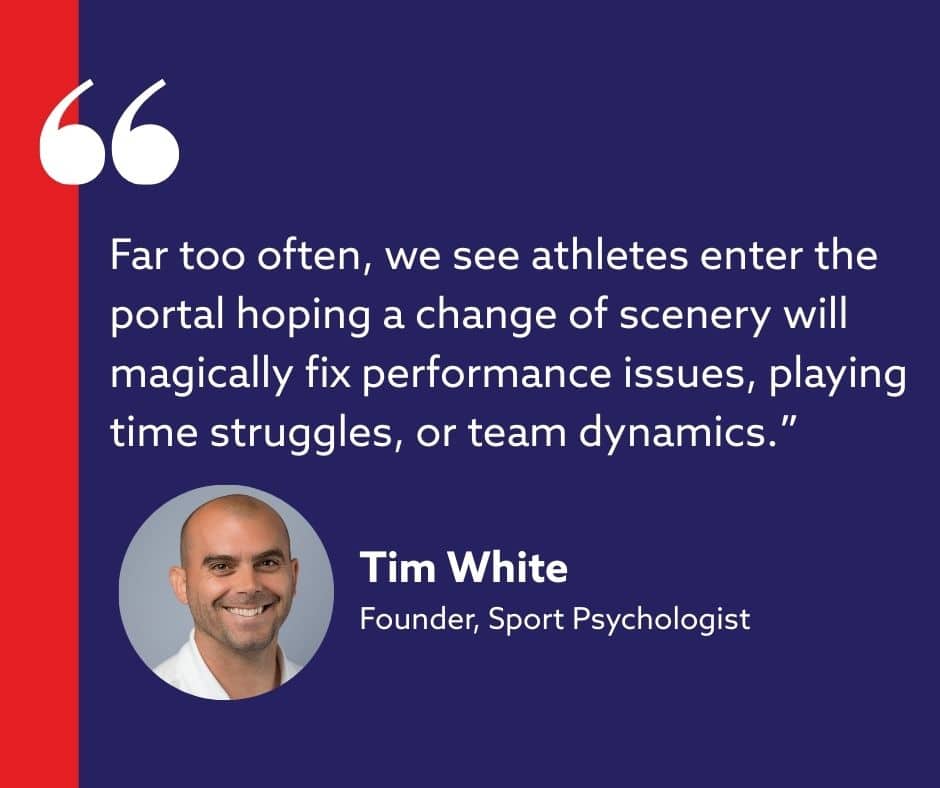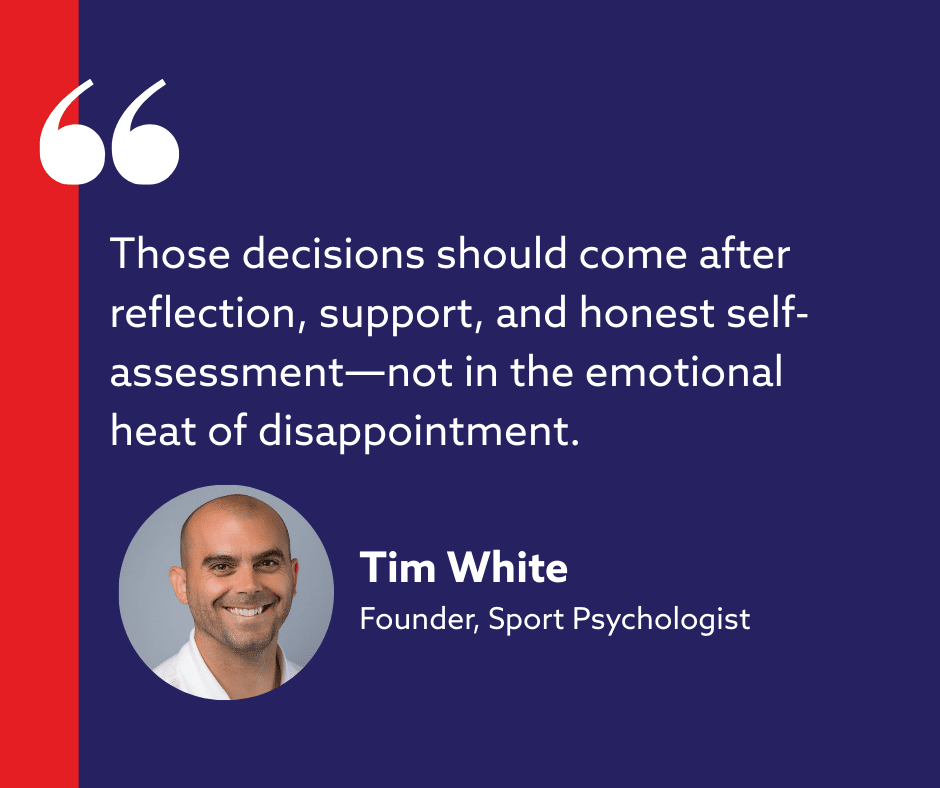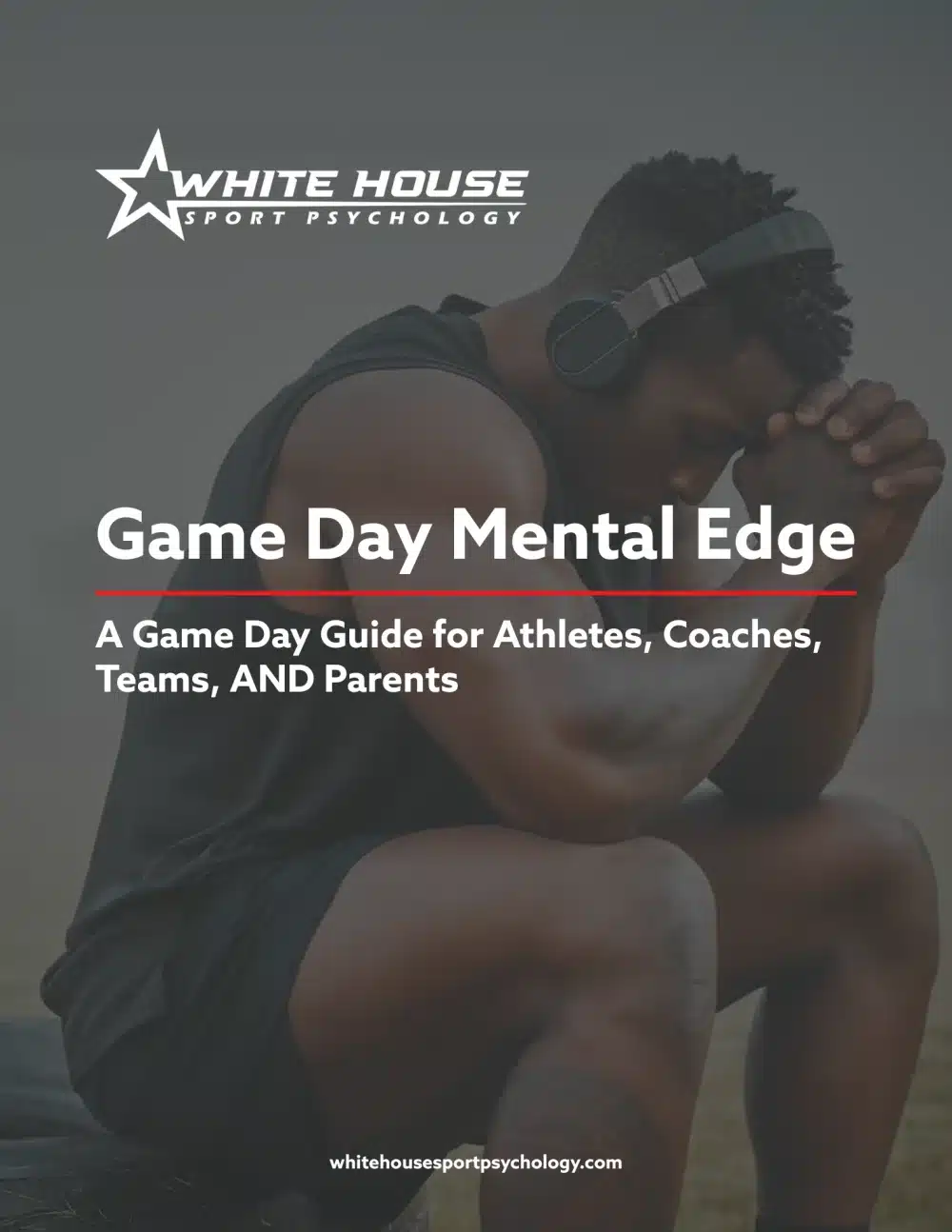The NCAA Transfer Portal has transformed college athletics. For some athletes, it’s a necessary path to find the right fit—whether academically, athletically, or personally. But at White House Sport Psychology, we’ve also seen a troubling trend: athletes using the portal as an escape hatch when things get hard.
Before jumping to the next school that seems “shinier,” athletes and parents must pause and ask: Are we making this decision from a place of growth, or from a place of frustration and avoidance?
The Transfer Portal: A Tool, Not a Fix-All
Let’s be clear—the transfer portal isn’t inherently bad. It can be a lifeline for athletes stuck in truly toxic environments. But far too often, we see athletes enter the portal hoping a change of scenery will magically fix performance issues, playing time struggles, or team dynamics.

The truth? Those same challenges have a way of following you—especially when they’re internal, not situational.
Recent data highlights just how widespread transferring has become. According to ESPN’s latest report on the NCAA transfer portal, more than 18,000 student-athletes entered the portal across all NCAA divisions during the 2022–23 academic year—a record-setting figure. While the portal offers increased flexibility and opportunity, it also comes with a harsh reality: not every athlete who enters the portal will find a new home. This reinforces the importance of making decisions with clarity about what you value and why, and being careful that you’re not falling into the trap of making decisions based on emotion.
Adversity Is Not Always a Sign You’re in the Wrong Place
There’s a critical developmental stage in every athlete’s career when they must face adversity head-on: a season on the bench, a tough coach, a role they didn’t want. These moments build resilience, grit, and emotional maturity.
Of course, these experiences are uncomfortable, even hard, yet athletes who run away from that discomfort can stunt that growth.
When an athlete transfers prematurely, they may miss out on the personal breakthroughs that come from working through hard things—learning to advocate for themselves, communicate better with coaches, regulate emotions under pressure, and recommit to growth when things don’t go their way.
That’s the foundation of long-term success, not just in sport, but in life.
Before Entering the Portal, Ask the Right Questions
As sport psychologists, we recommend athletes and parents explore the following questions together:
- What is the real reason I want to transfer?
Is it about lack of opportunity—or am I struggling with confidence, coaching style, or internal pressure? - Have I addressed the issues here first?
Have I had honest conversations with coaches? Used available support (e.g. sport psychology, mental skills training, counseling)? Tried solutions before seeking escape? - What lessons might I miss by leaving now?
What could I learn about myself if I stayed and fought through this? - What am I expecting the next school to “fix”?
Transferring may offer new opportunities, but it doesn’t erase the mindset or mental habits you carry with you.
Athletes Grow Most When They Stay Present in the Process
Some of the strongest athletes we work with are the ones who stayed through the hard season—not because it was easy, but because they grew from it. They developed resilience, maturity, perspective, and mental toughness.
That said, there are times when transferring is the healthy choice. But those decisions should come after reflection, support, and honest self-assessment—not in the emotional heat of disappointment.
With so many people sharing their opinions, it is often hard for athletes to make a decision that is truly in their best interest. Making things even harder is that many of the voices around today’s athletes (i.e. family, agents, coaches, etc.) have some sort of vested interest in the outcome and thus their ideas, thoughts, and comments often come with some level of bias.
Ultimately, the opportunity to talk to a neutral party has great value when you are trying to make such a significant decision. White House Sport Psychology is that neutral party. We don’t have a vested interest in where you go to school or who you play for. Our job is to help you gain insight and clarity into your current situation, the things you find most important and valuable in your life, and make decisions that help you live out those values every single day.

Let’s Help Athletes Make Growth-Minded Decisions
At White House Sport Psychology, we help athletes navigate big decisions with clarity and confidence—not fear or frustration. If your athlete is considering the transfer portal, we’re here to walk with you through the evaluation process.
We believe in helping athletes stay grounded, even when the next opportunity is calling. Growth doesn’t always look like a new jersey. Sometimes it looks like staying put and choosing to grow deeper roots.
If you or your athlete need help navigating the decision to enter or not to enter the NCAA Transfer Portal, White House Sport Psychology can provide that outside voice and walk alongside that process with you. Schedule a free consultation here.

